We abide by legislation governing what data is collected, how it is collected and stored, and how people can access our data.
We are assisted in defining our strategic direction by a Strategic Advisory Group (SAG). Current members of the SAG are listed below and operate in accordance with the SAG - terms of reference (PDF) .
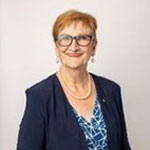
Professor Sanchia Aranda
Current Chair, VCR SAG
A nurse by background, Sanchia has worked in cancer control for over 40 years, most recently as CEO of Cancer Council Australia (2015-2020). She has held roles in healthcare, government, and tertiary education and across the spectrum from prevention, through treatment and palliative care. Over the past 12 years Sanchia has worked in roles that use cancer data and established the Cancer Institute NSW Reporting for Better Cancer Outcomes program. As CEO of Cancer Council Australia (2015-2020) Sanchia advocated for improved collection of and access to cancer data that would support system improvements.
For the last 28 years Sanchia has worked in international cancer control, serving on the boards of the International Society of Nurses in Cancer Care (President 2006-2010) and the Union for International Cancer Control (President 2016-2018). She is the inaugural Board Chair for the City Cancer Challenge Foundation (2019 – current)
Sanchia is the Board Chair for the Victorian Comprehensive Cancer Centre Alliance and holds a part-time appointment as Professor of Health Services Research in the Dept of Nursing, School of Health Sciences, The University of Melbourne.
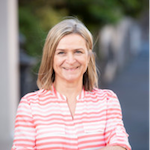
Professor Sue Evans
Prof Evans is an epidemiologist and health services researcher. She has an undergraduate degree in nursing and post-graduate qualifications in intensive care nursing, infection control, epidemiology and statistics. Her PhD focused on reporting of adverse events in hospitals. In 2009, joined the Monash University School of Public Health and Preventive Medicine and the led development of the Prostate Cancer Outcomes Registry-Victoria, which expanded over the following years to become the first national cancer clinical quality registry. In 2014 she was appointed as a Lead Chief Investigator on global prostate cancer registry and Head of the Data Coordination Centre; collecting, analysing and reporting on the quality of prostate cancer care across 12 countries. In 2020, Professor Evans was appointed Director of the Victorian Cancer Registry (VCR).

Mr Todd Harper
For three decades, Todd Harper has led organisations dedicated to global public health, including Cancer Council Victoria, Quit Victoria and VicHealth. Todd is a Board member and Past President of the NCD Alliance based in Geneva.
Since 2011, as Cancer Council Victoria’s Chief Executive Officer, Todd has led the organisation’s important work in cancer research, prevention, support and advocacy. During this time Cancer Council has led research initiatives in tobacco plain packaging, screening campaigns, obesity prevention, been at the forefront of bans on solariums and campaigns on junk food, alcohol and smoking.
Todd has a bachelor’s degree in Economics, a Postgraduate Diploma in Health Promotion, a Master’s Degree in Health Economics, and an Honorary Doctorate by Deakin University for ‘outstanding contributions and commitment to public health and for willingness to be innovative and brave in advocating for public health’.
Todd was appointed as a Member of the Order of Australia in June 2022 for significant service to cancer support programs and to medical governance.
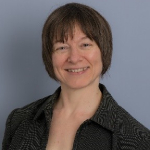
Associate Professor Nikki McCaffrey
A/Prof Nikki McCaffrey is an accomplished health economist specialising in the economics of cancer and palliative care with over 20 years’ experience in HTA, health economics and economic evaluation. She has attracted substantial research funding worth more than $12M and has published over 70 articles, editorials, commentaries, reports, book chapters and peer-reviewed publications.
Since 2017, Dr McCaffrey has headed up the Deakin Health Economics Cancer Stream, leading a team of researchers informing policymakers about the value for money and equity impacts of approaches to reduce cancer burden and improve the quality of life of people affected by cancer. She also leads the Economics of Cancer Collaboration with Cancer Council Victoria (CCV) to prioritise research to improve care for people affected by cancer. In 2020, Dr McCaffrey was awarded a four-year Victorian Cancer Agency Mid-Career Researcher Fellowship to deliver much needed evidence on the value for money of different prevention, detection and palliative care interventions. Dr McCaffrey also leads a successful NHMRC Partnership Project grant application ($1.3M, 2021-2024) in partnership with CCV, the Victorian Department of Health, Breast Cancer Network Australia, the Prostate Cancer Foundation of Australia and Cancer Council Australia, to define the social return on investment of telephone cancer information and support services.
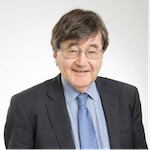
Professor David Roder
Since 2011 David Roder has been Cancer Council SA’s Beat Cancer Project Research Chair of Cancer Epidemiology and Population Health at the University South Australia. He also works under contract with Cancer Australia, Cancer Institute NSW, and Canteen.
He presently chairs AIHW’s Cancer Monitoring Advisory Committee, the NSW Population & Health Services Research Ethics Committee, and the Canteen Youth Cancer Service Data Advisory Panel. He sits on a range of other advisory, data set specification, accreditation and redevelopment committees.
He has authored over 400 peer-reviewed research publications and is active in research both as a researcher and research reviewer for numerous international journals and research funding bodies and has reviewed research units in SA, WA, NSW, Qld, Victoria, Tasmania and nationally.
David’s research interests are broad, but with a focus on cancer, health-services evaluation, safety & quality monitoring, data-infrastructure development, and with an additional emphasis on data linkage. He is interested in, and is optimising data use through data linkage within legal and ethical constraints.
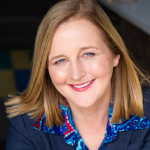
Professor Marion Seville
Professor Marion Saville has been Executive Director of the Australian Centre for the Prevention of Cervical Cancer (ACPCC) for over 20 years, where she has led the laboratory, population health and digital health teams focussing on the control of cancer and infectious diseases through the delivery of laboratory and registry services, particularly focussing on cervical cancer prevention.
Marion has served on cervical screening advisory committees in Australia, New Zealand and Ontario. She currently chairs the working group to review Australia’s Guidelines for the management of screen-detected abnormalities in the National Cervical Screening Program.
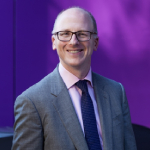
Professor Alexander Heriot
Professor Alexander Heriot is a Consultant Colorectal Surgeon and is the Director of Cancer Surgery at Peter MacCallum Cancer Centre in Melbourne and Director of the Lower GI Tumour stream at the Victorian Comprehensive Cancer Centre. He qualified from Cambridge University and completed general surgery training in the UK. He has undertaken colorectal fellowships at St Vincent’s Hospital, Melbourne, St Mark’s Hospital, London, and the Cleveland Clinic, Ohio. He completed a research doctorate at the University of London on rectal cancer and an MBA at Melbourne Business School.
He has a clinical focus on lower gastrointestinal oncology and has developed the Pelvic Exenteration service and the Peritoneal disease service at Peter Mac. He also has a focus on minimally invasive surgery for colorectal cancer with a particular interest in the development, application, and teaching of robotic colorectal surgery. He runs a robotic colorectal surgical program across Peter MacCallum and Epworth Hospitals.
He runs a translational research program on lower gastrointestinal oncology with a focus on personalised therapy.
Professor Heriot is a Clinical Professorial Fellow at the University of Melbourne and was awarded the John Mitchell Crouch fellowship by RACS for 2016. He was previously Chairman of the Research Support Committee for the Colorectal Surgical Society of Australia and New Zealand (CSSANZ) and is Chairman of the Australasian Training Board in Colorectal Surgery (TBCRS). He is Chairman of the Binational Colorectal Cancer Outcome Registry.
He has published over 350 peer reviewed papers, multiple book chapters and 1 book. He is on the editorial advisory board for Disease of the Colon and Rectum, Annals of Surgical Oncology, and Colorectal Cancer. He runs a translational research program focusing on lower gastrointestinal oncology and has raised over $10 million in grants and is currently/has supervised 32 surgeons undertaking higher degrees.
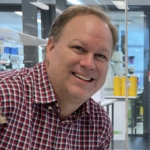
Associate Professor Daniel Buchanan
A/Prof Dan Buchanan received his PhD in Molecular Genetics from the University of Queensland in 2010. He was recruited to Melbourne in 2014 under the University of Melbourne Research at Melbourne Accelerator Program (R@MAP) scheme. He is Head of the Colorectal Oncogenomics Group in the University of Melbourne Centre for Cancer Research within the Victorian Comprehensive Cancer Centre. He has just completed a NHMRC R.D. Wright Biomedical Career Development Fellowship (Level 1; 2017-2020) and was recently awarded a NHMRC Emerging Leadership Level 2 Investigator Fellowship (2021-2025) and the prestigious Dame Kate Campbell Fellowship 2021-2025 (Dean’s Research Excellence award). He holds an honorary appointment within the Genomic Medicine and Familial Cancer Centre at the Royal Melbourne Hospital, where he contributes to the multidisciplinary approach to the diagnosis and risk management of hereditary cancer and colonic polyposis. He is a member of eviQ Cancer Genetics Reference Committee tasked with providing national guidelines for the testing and management of hereditary cancer syndromes and he recently co-led the revision of the testing and risk management guidelines for i) Serrated Polyposis Syndrome, ii) POLE and POLD1 genes and iii) Gastrointestinal polyposis and colorectal cancer - panel testing.
He is an author of the “ AXIN2-associated polyposis” and “ MBD4-deficiency associated multi-tumour predisposition syndrome” chapters of the World Health Organisation Classification of Tumours-Genetic Tumour Syndromes ("WHO Blue Books"). He is a member of the U24 funded InSiGHT-ClinGen CRC-Polyposis Variant Curation Expert Panel (VCEP) and co-chair of the POLE/POLD1 working group.
He leads a multi-disciplinary research group investigating the application of (epi)genomics and molecular pathology for the precision prevention of colorectal cancer. He has been awarded competitive salary and project grant funding of >$31M, including >$9.5M as the Lead/Principal/Chief Investigator A. He has >250 peer-reviewed publications on the aetiology of colorectal and endometrial cancer and the characterisation and risk management of hereditary cancer and polyposis syndromes. He is the PI of the International Genetics of Colonic Polyposis Study (GCPS), the PI of the NHMRC-funded ANGELS study aimed at applying novel genomic approaches to early-onset and suspected Lynch syndrome colorectal and endometrial cancers. He has been the Co-PI of the Australasian Colorectal Cancer Family Registry (ACCFR) since 2014 and an active member of the Colon Cancer Family Registry Cohort (CCFRC) since 2006 including managing the ACCFR’s biorepository and as lead of the Genomics and Molecular Pathology research. He is co-PI of the world’s foremost study of sebaceous skin lesions (NHMRC-funded) aimed at improving triaging approaches for the identification of Lynch syndrome. He is an active member of the International Genetic Epidemiology of Colorectal Cancer Consortium (GECCO) leading GWAS and tumour-based colorectal cancer research.

Professor Roger Milne
Head of Cancer Epidemiology Division, BCom, BSW, BA, Grad Dip Clinical Epi, MSc, PhD
Roger is an epidemiologist with expertise in the analysis of genetic and lifestyle data from observational studies, and in international collaboration. He joined Cancer Council Victoria in 2013 and was appointed the Cancer Epidemiology Division’s Head in 2017. He is Chief Investigator of the Melbourne Collaborative Cohort Study (Health 2020) and the Australian Breakthrough Cancer Study.
Roger’s work focuses on cancer epidemiology, including genetic and lifestyle-related risk factors, genetic and gene-environment interactions and DNA methylation. He currently holds a World Cancer Research Fund grant to investigate the causes of bladder cancer.
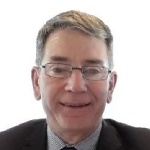
Mr Colin Hornby
Colin had over 35 years clinical experience as a Radiation Therapist at Peter MacCallum Cancer Centre before moving from his Head of RT Planning Clinical Services role to become the Radiotherapy advisor to the Victorian Department of Health. As part of his role at the department Colin is responsible for oversight and manage of the VCR contact.
Other experience includes a masters by research and post grad qualifications in teaching including course radiation therapy auditing across Australia.
Colin has contributed extensively to professional conference meetings as a speaker having delivered many, many presentations at national and international meetings, and has more than 25 publications in peer reviewed journals.
Colin has also provided specialist university lectures and course notes for Victorian medical radiations degrees and post-grad nursing courses. He has also provided consulting and dosimetry training in Australia and Asia. He is a fellow of the Australian Society of Medical imaging and Radiation Therapy, a member of the American Association of Medical dosimetrists and a reviewer for 3 peer reviewed scientific journals.
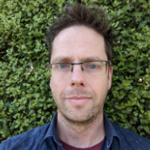
Dr Luc te Marvelde
Trained as an independent researcher in biological sciences, Luc te Marvelde has been employed in the cancer sector since 2012 as Biostatistician, Research Fellow, Team leader and now Head of Data Analytics at the Victorian Cancer Registry (VCR).
Luc is passionate about building (or improving) data systems that provide the evidence base for policy development. Luc feels at home at the intersection of statistical work, IT and clinical application. Luc aims to maximize the use of insights from VCR data by policy makers, researchers, patients and carers. For example, together with the CCV design team, Luc led the creation of the VCR Data Explorer ( cancervic.org.au/cancer-information/statistics).
Previously, Luc was given the opportunity to build a team of analysts that led many of the state’s data analyses using Victorian cancer registry data to the administrative datasets. He also led the creation of the Statewide Cancer Indicator Platform (SCIP). This platform is used by the government and Integrated Cancer Services to identify evidence-based improvement opportunities in cancer care and outcomes for Victorians diagnosed with cancer.
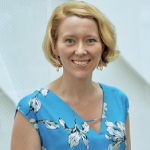
Associate Professor Belinda Campbell
MBBS, MMed (research), FRANZCR
Associate Professor Belinda Campbell MBBS, MMed, FRANZCR is Deputy Director of Radiation Oncology at Peter MacCallum Cancer Centre and Honorary Clinical Associate Professor at The University of Melbourne. She specialises in the radiotherapeutic management of haematological malignancies, with particular interest in lymphomas, cutaneous lymphomas, late effects, and survivorship.
Her primary research focus is to improve outcomes for patients with lymphomas, including access to care, best clinical practice, and long-term survivorship issues. In 2022, A/Prof Campbell was awarded a Future Leaders Fellowship in health services research by the Melbourne Academic Centre for Health (MACH), launching her into a PhD to improve equity and access to specialist care for people diagnosed with cutaneous T-cell lymphomas across Australia.
A/Prof Campbell serves as Deputy Editor of the Journal of Medical Imaging and Radiation Oncology (JMIRO); Senior Section Editor for the International Journal of Radiation Oncology, Biology and Physics (Red Journal); and Council Member of the International Lymphoma Radiation Oncology Group (ILROG).

Juliana Emerick
I am a nutritionist and a marketing specialist, now working in research and as a speaker. My professional experience, in addition to my personal history with cancer, has led me to share everything I have learned and has increased my desire to help others who are suffering from cancer. Since being diagnosed with breast cancer in 2016 (at the age of 27), I have started volunteering in non-profit organisations in Brazil and since 2022 here in Australia. As a health professional and a patient, I understand the points on both sides and I think my experience can help people to live through cancer in a better way. I feel honoured to be part of the Victorian Cancer Registry (VCR) as a Consumer Representative Member.
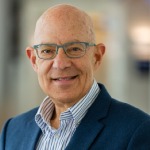
Professor John Zalcberg
Professor Zalcberg is Head of the Cancer Research Program at Monash University, providing academic leadership to numerous clinical quality registries and holds the inaugural Tony Charlton Chair in Cancer Research at the Alfred Hospital and Monash University, Melbourne, Australia. Prior to this appointment, he was Director of the Division of Cancer Medicine at the Peter MacCallum Cancer Centre. His research interests include quality of care and drug development for patients with GI cancer – an area in which he continues to practice. He has published over 350 articles in peer-reviewed journals.
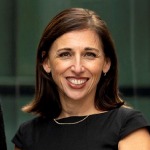
Professor Dianna Magliano OAM
Head of Diabetes and Population Health, Baker Heart and Diabetes Institute, Australia
Professor Dianna Magliano has a BAppSci (Hons), PhD, and a Master of Public Health. Professor Magliano has worked for over sixteen years in epidemiology, the majority in diabetes, cardiovascular disease, and obesity research. Her more recent work involved examining the association between diabetes and cancer using large datasets. With NHMRC project grant funding, she established the ANZ Diabetes and Cancer Collaboration dataset which is a collaboration of 18 Australian cohort studies with the aim to examine the relationship between diabetes, obesity, metabolic syndrome and hypertension and cancer. Her more recent work involves exploring the trends in diabetes incidence and mortality across the globe and heads a consortium of 24 collaborators to do this work. She has a strong international reputation evidenced by her role as an editor for Diabetes Research and Clinical Practice, the presidency of the International Diabetes Epidemiology Group in 2015-2017 and her position as co -chair to the current edition (10th) of the Diabetes Atlas for the International Diabetes Federation. Professor Magliano has strong epidemiological and biostatistical skills. As the senior epidemiologist of the Australian Diabetes, Obesity and Lifestyle Study (AusDiab) for over 15 years, she has acquired real life epidemiological training by working directly in the field, conducting epidemiological analyses. In 2017 she was awarded a NHMRC Senior research fellowship and the Australian Jeff flack Diabetes data award from the Australian Diabetes Council and the Michaela Modan award for the best epidemiological abstract from the American Diabetes Association. In 2021, she was awarded an Order of Australia Medal for her work in epidemiology.
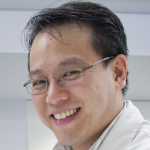
Dr Ashley Ng
Associate Professor Ng is a Haematologist in the Clinical Haematology Department of the Royal Melbourne Hospital and Peter MacCallum Cancer Centre, and Clinical Informatics Lead in the Department of Health Services Research at Peter MacCallum Cancer Centre overseeing implementation of clinical data linkage and informatic projects. He is a Clinician Researcher at the Walter and Eliza Hall Institute (WEHI) leading research in stem cell, immune cell, and blood cancer development, and co-chairs the Artificial Intelligence Machine Learning Education and Ethics working group at WEHI. He is an investigator on phase I/II/III clinical trials for patients with blood cancer serving as a member of the Australasian Leukaemia and Lymphoma Group, and the Asia Pacific Leukaemia Consortium.